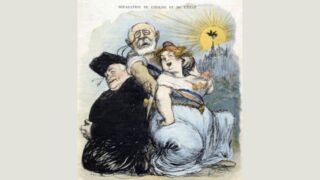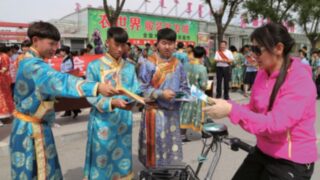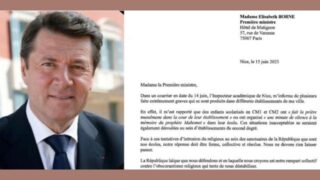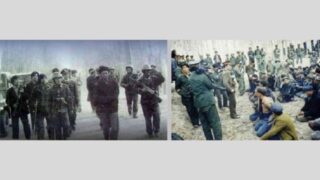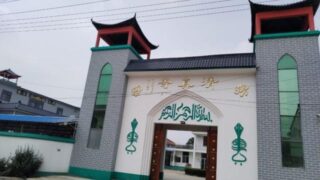Government claims those who stay at home for COVID lockdowns watch too much pornography. Yet, for the CCP “pornography and illegals” also include independent religion.
by Tan Liwei


Last month, the Office of the National Working Group for Cracking Down on Pornography and Illegal Activities released a memorandum on its planned activities for 2022.
The Office has an interesting story. In 1989, the Office of the National Leading Group for Cleaning and Rectifying Books, Newspapers, and Periodicals, i.e., the office for Chinese censorship, was established. Already at that time, it was explained that there was a problem with clandestine pornography, and fighting it was a main task of the office. However, the new central censorship authority was established in August 1989, just two months after the events of Tiananmen Square, and as part of a tighter control of whatever was published in China.
In 1998 the slogan “cracking down on (or ‘sweeping’) pornography and fighting illegals” (扫黄打非) was launched, and a special anti-pornography-and-illegals division of the censorship office was established. It was reorganized as a National Working Group by the Central Committee of the CCP in 2000. In 2013, the Working Group passed under the authority of the State Administration of Press, Publication, Radio, Film, and Television. In 2018, it was transferred under the authority of the Central Propaganda Department.
These were not merely administrative readjustments. The fact that the anti-pornography working group passed under the authority of the Central Propaganda Department means that the fight against “pornography and illegals” is seen as part of domestic propaganda.
The CCP has consistently exposed pornography as part of a “spiritual pollution,” and has imposed penalties up to life imprisonment to those publishing pornographic materials. However, this fight has not been very effective. According to surveys, 70% of Chinese men aged 18 to 29 watch pornography. And now the government claims that these men have spent even more time watching pornography when they had to stay at home because of the COVID-19 lockdowns.
Hence, tighter rules. As usual in China, a popular and laudable aim, combating the addiction to pornography that is a real problem, particularly among students, is used as a trojan horse to introduce at the same time forms of control that have nothing to do with that problem.
The memorandum includes a long list of publications that are equated with pornography. They include those that “endanger national unity, sovereignty and territorial integrity;” “damage national honor and interests;” “disrupt social order and disrupt social stability;” “endanger social morality or the fine cultural traditions of the nation.” Last but not least, included are “publications promoting xie jiao [religious groups banned as ‘heterodox teachings’] and superstition.” This is reminiscent of the fact that under Chinese law religion and depictions of sexuality have somewhat in common: both are forbidden to minors. Not even infants in the arms of their mothers are allowed to enter a place of worship, and any form of religious education of those under 18 is illegal.
As for “pornography and illegals,” perhaps a list is not even needed, as we are reminded that “‘Illegal publications’ refer to books, newspapers, periodicals, audio-visual products, and electronic publications that are not published by publishing units approved by the state and are publicly distributed in the society.”
Basically, everything that is not authorized by the government and the CCP may be forbidden as part of “pornography and illegals.”



